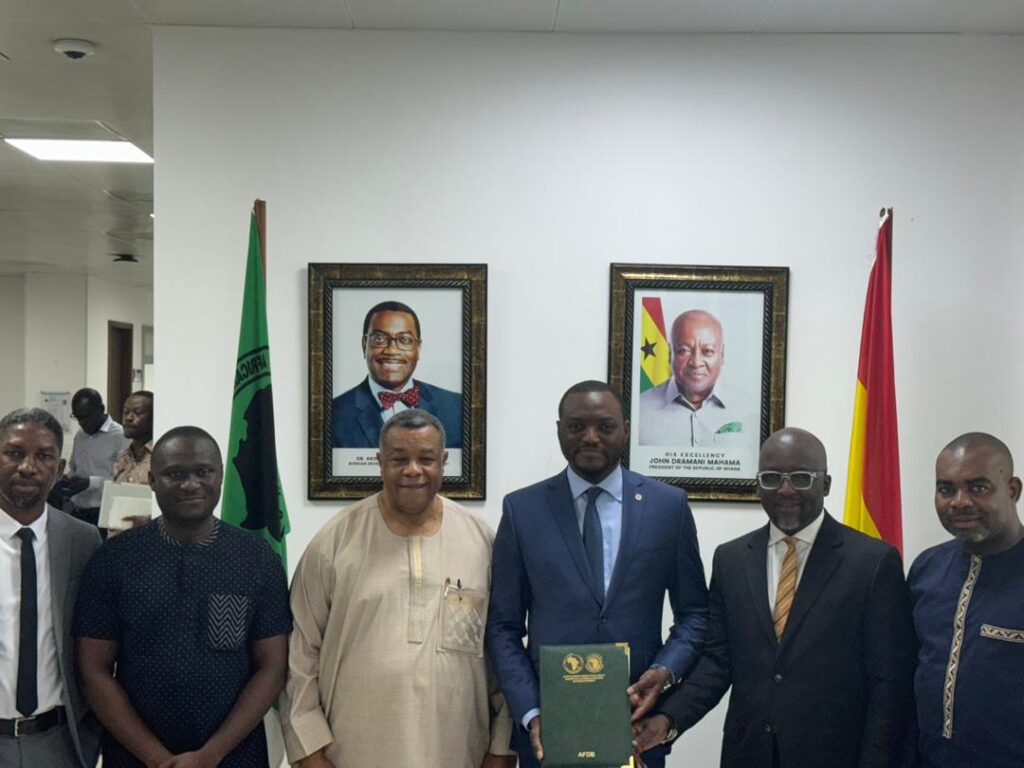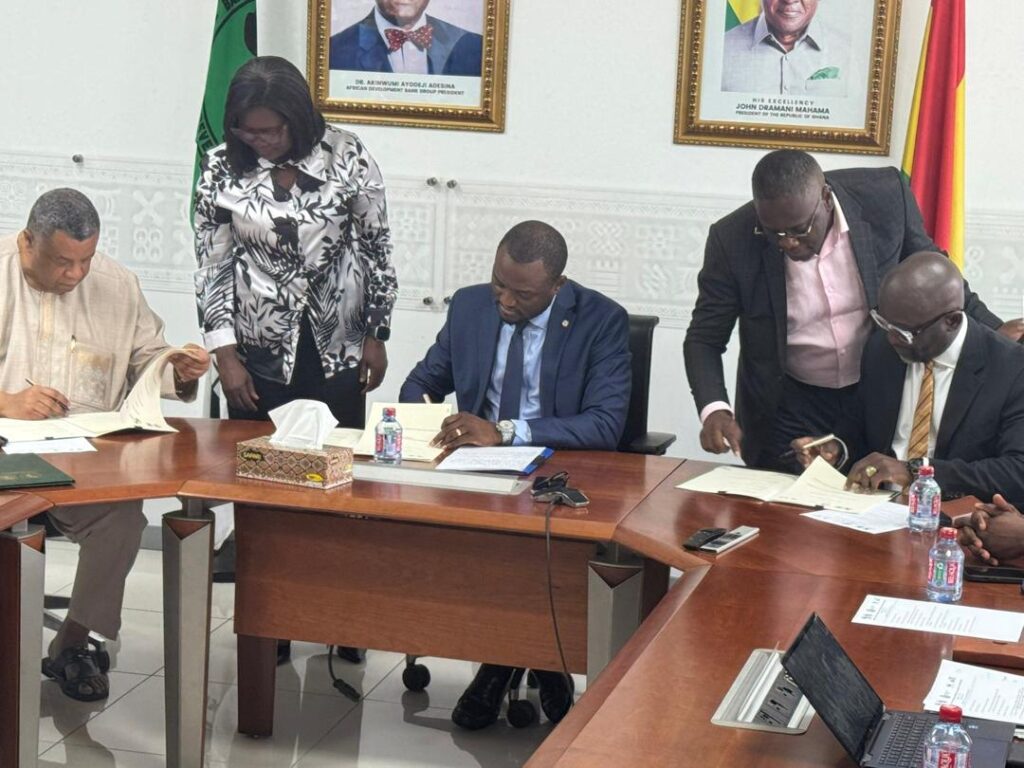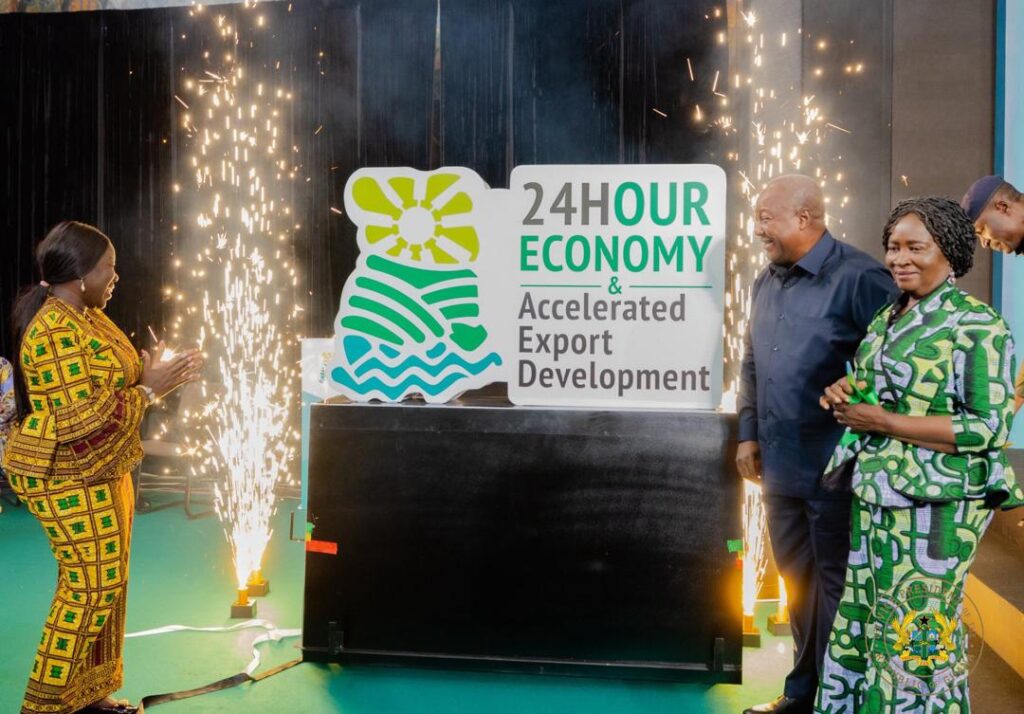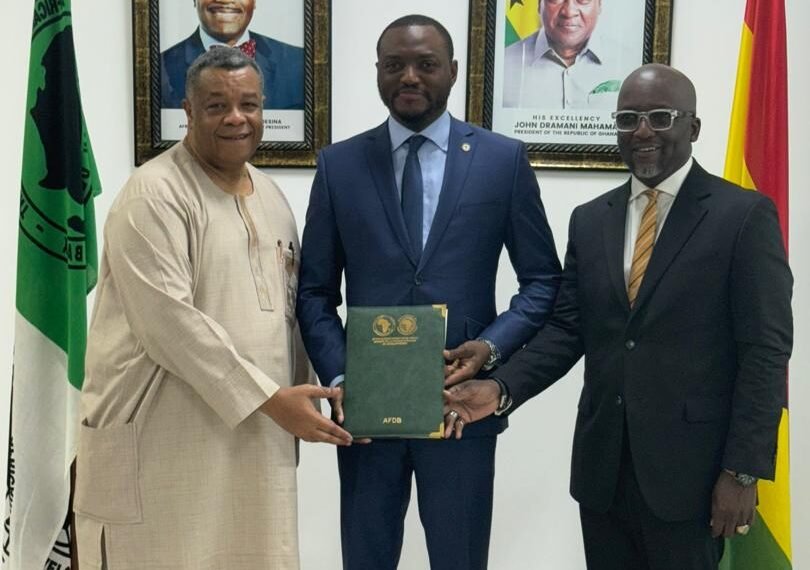In a bold move to redefine Ghana’s infrastructure and trade potential, the Ghana Infrastructure Investment Fund (GIIF) has signed a landmark Letter of Intent (LOI) with the 24-Hour Economy and Accelerated Export Development Secretariat and the African Development Bank Group (AfDB) to support the development of the Volta Economic Corridor.
This transformative initiative, which falls under the newly launched flagship 24-Hour Economy and Accelerated Export Development Programme (24H+), is expected to establish Lake Volta as a strategic multimodal transport hub and unlock wide-reaching agricultural, industrial, and export opportunities for the nation.
The signing of the LOI follows the official launch of the 24H+ Programme on July 2, 2025, by President John Dramani Mahama.
The Volta Economic Corridor stands out as a core infrastructure pillar of this ambitious initiative, which seeks to expand Ghana’s productive capacity beyond conventional limits and deepen the country’s participation in continental and global value chains.
At the signing ceremony, Presidential Advisor and Head of the 24H+ Secretariat, Augustus Goosie Tanoh, emphasized the far-reaching implications of the agreement.
“This partnership signals Ghana’s commitment to mobilise transformative capital, world-class expertise, and public-private partnerships to drive our 24-hour production ambition and unlock export competitiveness.
“AfDB’s collaboration with GIIF and the Secretariat gives us confidence that we can deliver projects that create jobs, raise incomes, and position Ghana as a leading trade and industrial hub under AfCFTA.”
Presidential Advisor and Head of the 24H+ Secretariat, Augustus Goosie Tanoh
Mr Goosie Tanoh noted that the 24H+ Programme, while government-initiated, will be primarily private-sector driven.

He explained that government seed funding will serve as a catalytic instrument to unlock larger flows of private investment—an approach that aligns with international best practices in infrastructure financing and public-private partnerships.
Special Purpose Vehicles to Spearhead Project
GIIF, as Ghana’s premier infrastructure investment vehicle, will take the lead in establishing Special Purpose Vehicles (SPVs) to implement specific components of the corridor.
These SPVs will focus on three major areas: inland water transport and port infrastructure, agro-ecological parks and irrigation systems, and lakeside industrial parks and logistics zones.
These interventions aim to simultaneously address logistical inefficiencies, promote value addition in agriculture, and expand industrial processing capacity near the Volta Lake.
GIIF Chief Executive Officer, Nana Dwemoh Benneh, underscored the fund’s role as a strategic bridge between public goals and private sector capabilities.
“We are proud to be at the heart of this transformative collaboration. The GIIF, supported by government seed funding, is well-positioned to attract the capital necessary for full-scale implementation.
“This is a perfect example of what can be achieved when national priorities are translated into bankable, high-impact projects.”
GIIF Chief Executive Officer, Nana Dwemoh Benneh
According to Benneh, the Volta Economic Corridor exemplifies GIIF’s core mission of enabling strategic, long-term infrastructure investments that accelerate Ghana’s economic transformation.

He expressed optimism that the model being piloted through this project—centered on strong partnerships, targeted public investment, and investor confidence—will set a precedent for future development initiatives across Ghana and beyond.
The corridor is expected to significantly boost Ghana’s inland logistics infrastructure by improving transport connectivity from Lake Volta to landlocked neighboring countries such as Burkina Faso, Mali, and Niger.
This will enhance Ghana’s competitiveness as a regional trade and logistics hub under the African Continental Free Trade Area (AfCFTA).
Volta Economic Corridor’s Job Potential
Beyond infrastructure, the Volta Economic Corridor has the potential to generate significant employment opportunities in agriculture, agro-processing, transport, logistics, and manufacturing.
With the development of irrigation systems and agro-ecological zones, the project will also support climate-resilient farming, improving food security and rural livelihoods.
The initiative also aligns with the African Union’s Agenda 2063, which prioritizes sustainable industrialization, regional integration, and infrastructure-led development.

In particular, the Volta Corridor advances the AfDB’s High 5 development goals to “Feed Africa, Industrialise Africa, and Integrate Africa,” further strengthening the synergy between Ghana’s national aspirations and continental objectives.
The 24H+ Secretariat sees the Volta Economic Corridor not just as a domestic development project but as a strategic continental node that positions Ghana as a regional powerhouse in logistics, trade, and agro-industrial value chains.
Its successful implementation will stand as a testament to the power of visionary policy, pragmatic financing, and multilateral collaboration.
READ ALSO: Eduwatch Boss Applauds Timely Student Loan Disbursements, Urges Further Reforms



















